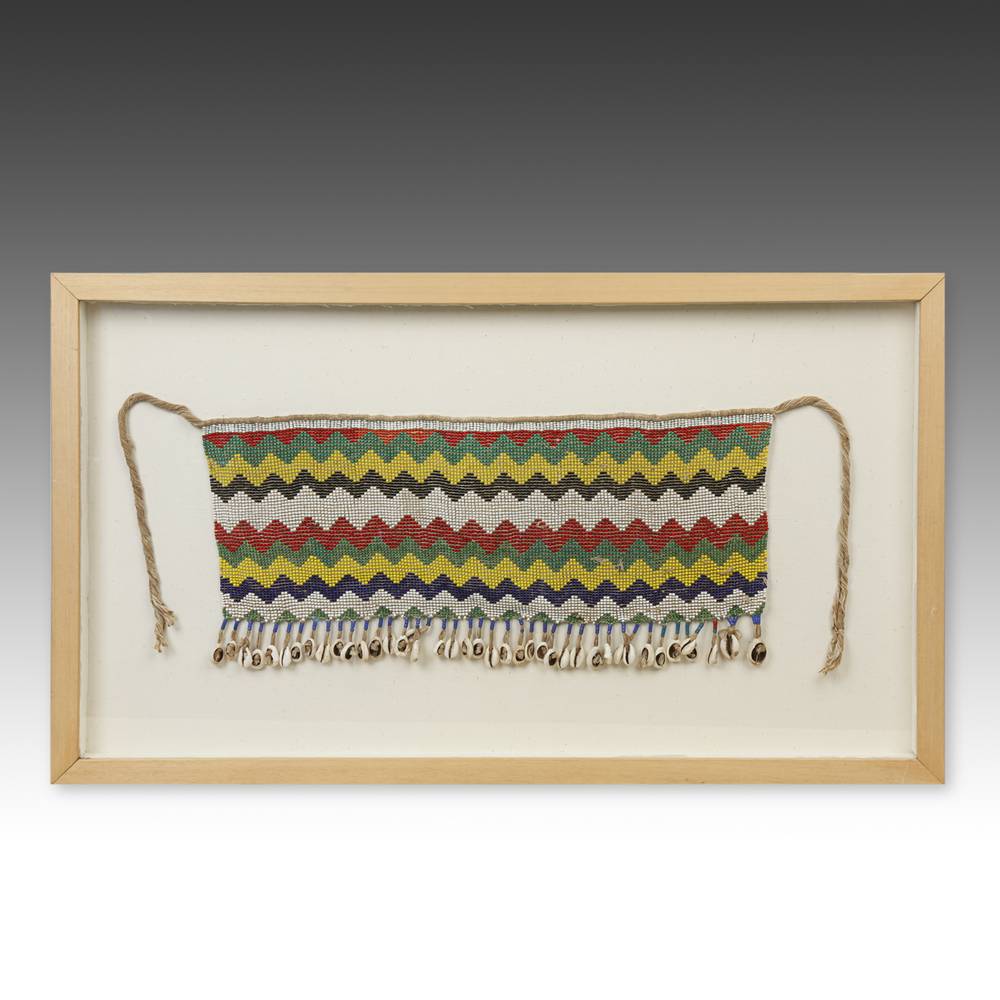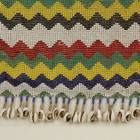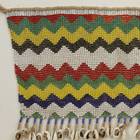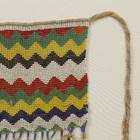|
LOT # 105 Pikuran Cache-Sexe or Fertility Apron, FramedKIRDI PEOPLE CAMEROON, WEST AFRICA 20TH C. BEADS 28.50'' W X 1.25'' D X 16.4'' H The highest online bid placed for each lot prior to noon 02/25/2011 will be honored as the starting bid in the live auction at Primitive. |
Among some Cameroon groups, women simply wore Pikuran also known as 'caches sexes’ in various writings (literally - ‘to hide the sex’) until approximately 1961, when governmental restrictions required women to be fully clothed. However the tradition continues in a number of ornate beaded forms worn today.
The Matakam are also known as 'Kirdi' or 'pagans', a name given to them by the Islamized Kanuri or Fulani who came into the area sometime during the 1600s. The Matakam or Kirdi live in small farming communities and are known for their arts of personal adornments including the 'cache sexes,' as well as necklaces, bracelets and other attachments worn on the belt supporting their 'aprons'. Composed of small iron strips the pubic aprons were worn by mature married women indicating their elevated status in Kirdi society. Beaded aprons have today replaced those of iron and are worn by women upon special occasions such as marriage or during the presentation of new born children. Geometric patterns found on the brightly colored beaded aprons reflect designs shared by a number of neighboring peoples. It is an example of how traditions are maintained in other forms and materials serving custom and aesthetic expression. The nomadic Fulani of Cameroon and their neighbors, the Kirdi, both make these beaded aprons. Maidens wear beaded cache sexe, sometimes torn by their new husbands as part of wedding night rituals.











